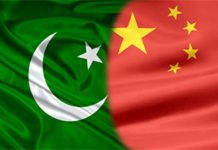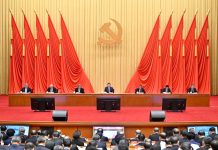BEIJING: China Media Group’s Asia-Africa Center, in cooperation with Chinese embassies and local think tanks, has recently hosted a series of seminars in Pakistan, the Philippines, Cambodia, Laos, Kenya and Türkiye on the China-proposed Global Governance Initiative (GGI).
Officials, scholars and media representatives said the initiative addresses the global “governance deficit” and provides a constructive framework to counter unilateralism, strengthen the Global South’s voice and foster a more just international order.
Noting that the current international landscape is marked by uncertainty and complexity, with countries – including those in the Global South – confronting multiple challenges, Lao Foreign Minister Thongsavanh Phomvihane said the initiative is both timely and necessary.
“By emphasizing sovereign equality, people-centered governance and multilateral development, it reflects China’s sense of international responsibility and its image as a major country committed to the global good.” Alparslan Bayraktar, Türkiye’s minister of energy and natural resources, also said the initiative offers constructive solutions to global problems – including regional conflicts, humanitarian crises and energy security – that the current international system has failed to address.
Bayraktar added that China’s responsible role on multilateral platforms not only injects confidence into the world, but also demonstrates to the international community that fairness and stability can be achieved through cooperation.
Meanwhile, Kenyan international affairs expert Cavince Adhere stressed that many international organizations and institutions have long been dominated by a few countries, leaving the voices of developing nations unheard.
The China-proposed GGI instead responds to the shared aspirations of people in all countries and meets the pressing need for fair and just solutions to the global governance deficit, said Adhere.
Herman Tiu Laurel, president of the Philippine-BRICS Strategic Studies and a well-known political commentator, said the Western model of a unipolar world, led by the United States, has been highly detrimental to smaller countries like the Philippines. By contrast, the China-proposed GGI is an effective proposal to end unilateral hegemony and defuse the geopolitical crises stirred up by the West, Laurel added.
Neak Chandarith, director of Cambodia 21st Century Maritime Silk Road Research Center, shared his views at a seminar. Amid ongoing economic globalization, Chandarith said the GGI’s clear call for “a multipolar, balanced and orderly discourse” aligns with the concept of democratic international relations.
He expressed hope that the international community will put the GGI into practice, correct the unjust international order and ensure the voices of the Global South are heard. –The Daily Mail-CGTN news exchange item






